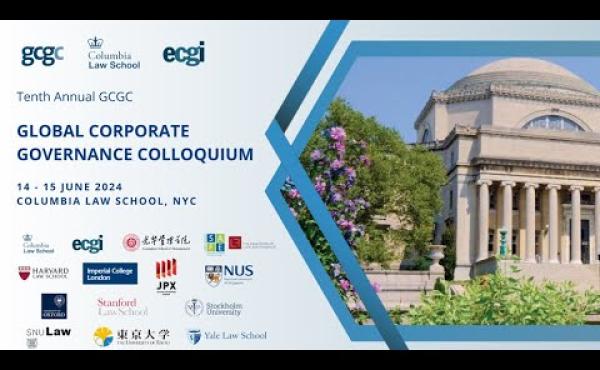
The ECGI blog is kindly supported by

Interview with Mariana Pargendler on Nationalism and Corporate Law
This interview is based on Mariana Pargendler's research on nationalism and corporate law, which explores how political boundaries and national interests continue to shape corporate governance structures and legal doctrines across jurisdictions.
________________________________
You’ve written extensively about nationalism’s influence on corporate law. Is this relationship between nationalism and corporate governance a recent development?
Nationalism has long played a key role in the evolution of corporate law—it has never really gone away. While economically-oriented scholars often conceptualize law in terms of general welfare, the reality is that jurisdictions have borders, and local political systems naturally tend to favor domestic over foreign interests.
History is full of examples: corporate law has been used to maintain domestic control of strategic industries, resist foreign takeovers, and give greater voice to domestic stakeholders—as in Germany’s signature codetermination regime. And we are still finding historical evidence of how nationalism has shaped classic corporate law doctrines such as limited liability.
Could you share a specific example from your research that illustrates this nationalist dimension of corporate law?
My current research with Olivia Pasqualeto provides a particularly striking case. We are examining Brazil’s surprisingly early adoption of parent company liability for labor obligations in 1937 and have found that nationalism was central to this development. Brazilian lawmakers explicitly cited the economy’s domination by foreign corporate groups as justification, noting that such groups could otherwise use separate legal entities to evade emerging protections for domestic workers. This demonstrates how seemingly technical legal doctrines like limited liability can be shaped by nationalist concerns—a pattern that remains relevant across jurisdictions today.
Is the present moment of geopolitical tensions different in its implications for corporate governance? Are we entering a structurally new phase in how nationalism shapes corporate structures?
While nationalism and protectionism have been recurrent, today’s context is distinct in many ways. First, nationalist measures in the past often took the form of corporate governance interventions precisely so they would be more covert and less obvious. Countries often wanted to protect domestic industries at home while ensuring open markets for their firms abroad. However, these days nationalism is once again a political slogan overt. We see nationalistic considerations being asserted through increasingly blunt and bolder instruments of control of foreign direct investment.
Second, there is the new relevance of data governance in the current geopolitics of corporate governance—a topic I am exploring in current research with Curtis Milhaupt and Dan Puchniak. Control over data is now crucial, and does not necessarily align with traditional conceptions of corporate nationality. For instance, the controversy over TikTok has centered not on shareholding, but on the legal and extralegal influence that Chinese authorities could exercise over data. This breaks down the conventional legal criteria for determining corporate nationality and creates new challenges.
With these nationalist trends emerging, are there countervailing forces promoting more global or harmonized approaches to corporate governance?
Absolutely, though these forces are also currently under strain. One of the most significant 21st century developments in corporate law has been what I call “the rise of international corporate law.” International organizations, such as the World Bank, the OECD, and the United Nations, have acted to counteract nationalist temptations in order to address global challenges. The ESG movement, for example, emerged from a UN initiative.
Despite pronounced localist backlash—in the United States, for instance—the global agenda for corporate governance continues to develop in increasingly complex ways. Nonprofits and international NGOs have played a major role shaping corporate governance standards through advocacy, norm-setting, litigation, and shareholder proposals—a trend I am investigating with Elizabeth Pollman. Even as U.S.-based localist nonprofits push back, this contest is far from settled.
Your research spans multiple legal systems. Are we seeing a fragmentation of corporate governance — or do you think convergence may still be possible, even under geopolitical strain?
Differences do persist, and new divergences may well emerge, but convergence is far from dead—both through international coordination and competition. What is more interesting is the question of what, exactly, different systems are converging to. We have seen climate disclosure regulations diffusing around the world in recent years, even while they’ve stalled—for now—at the national level in the United States. Regulations like the EU’s Corporate Sustainability Due Diligence Directive have extraterritorial reach, offering a new route to convergence.
And there are still new forms of convergence through competition. While at the turn of the century the theme was convergence to the “one-share, one-vote” model, we now see changes in favor of dual-class structures, not least due to the pressures of international competition. We have also seen the spread of more intrusive systems of control of foreign investments—a form of convergence to nationalism, if you will.
_______________
The ECGI does not, consistent with its constitutional purpose, have a view or opinion. If you wish to respond to this article, you can submit a blog article or 'letter to the editor' by clicking here.







